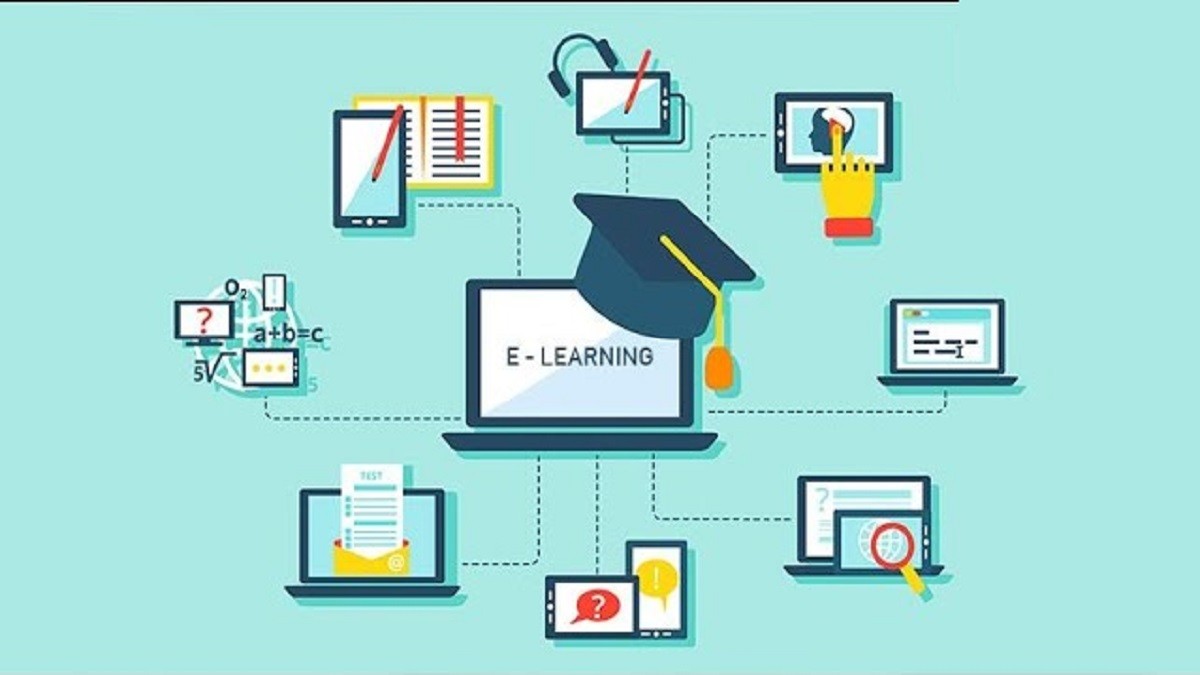

Consultant-Development of the MSEs Business Clinic Business Model & Feasibility
8/10/2023 www.akhtaboot.comAmman, Jordan
others
Job requirements
-
Senior (Team Leader/Staff Supervisor)
Description
Interested applicants can apply directly through this link.
Shortlisted applicants will be contacted to provide us with the required documents.
About Mercy Corps
Mercy Corps is powered by the belief that a better world is possible. To do this, we know our teams do their best work when they are diverse, and every team member feels that they belong. We welcome diverse backgrounds, perspectives, and skills so that we can be stronger and have a long-term impact.
The Program/Department/Team
The Informal Livelihoods Advancement Activity (Iqlaa) is a five-year activity implemented by a consortium led by Mercy Corps, and aims to put Jordanian micro and small enterprises (MSEs)[1], operating in the formal and informal sectors, on a path to recovery after the extraordinary crisis that the businesses have faced, help them access the safety net measures in Jordan, and, most importantly, regain productivity and growth.
The approach adopted by Mercy Corps Jordan (MCJ) to IQLAA integrates direct assistance with Market Systems Development (MSD) interventions to support MSEs along the full journey from recovery to growth and resilience. Grounded in evidence-based, adaptive, and inclusive support, Jordan’s MSEs can emerge from the COVID-19 crisis stronger and more resilient, transformed through new ways of doing business and improved access to finance, markets, and services. Understanding that women, youth, and people living with disabilities (PLWD) face unique constraints to starting up and leading resilient MSEs, Iqlaa’s design will infuse a Gender, Youth, and Social Inclusion (GYSI) lens throughout all interventions. Mercy Corps’ approach is committed to supporting MSEs build back, formalize, and grow, emphasizing systems-level change, equitable opportunities, and a dignified work environment for all women, men, youth, and PLWDs in Jordan.
Background for this consultancy:
Iqlaa wishes to establish 2 business clinics. A business clinic is a specialized support entity that provides existing micro, small, and home-based businesses with tailored assistance and counseling according to a structured diagnostic of their businesses and symptoms they show. Business clinics are able to effectively identify and prioritize business challenges and issues faced by MSEs to guide owners of small, micro, and home-based businesses to take the necessary steps leading them to long-term growth, success, and overall community development, boosting the country’s economic resilience.
In line with this, Iqlaa will develop the business clinics through granting the private sector, specifically business development service providers to set up screening, assessment/diagnosis, support plans, and follow up/post service delivery.
This will entail categorizing diagnosed MSEs according to maturity levels, and accordingly placing them on defined and structured support paths as per their individual needs and objectives.
This will also entail creating alliances, and partnerships with designated players who will help support MSEs in need of support as per designated paths MSEs are recommended to take.
The type and length of interventions between the clinics and the MSEs will be governed by the need, the length of the intervention plan, and the goals the MSEs want to achieve.
The clinics are expected to improve the performance of MSEs in terms of both business and financial performance.
Project Purpose:
Iqlaa is looking to hire a short-term individual consultant to develop a business model, a general business plan and financial feasibility study/sustainability plan for a typical business clinic. The consultant should suggest the necessary types of stakeholders and partners and their roles to facilitate sustainability as well as identify types of businesses to target to facilitate sustainability. Finally, the consultant will be required to develop a Request for Applications (RFA) to attract interested business owners to apply to receive a grant to establish and manage a business clinic, and will participate in evaluating received proposals, and recommend final applications that should be considered.
Consultancy Objectives:
- Design and develop a business model for the 2 business clinics Iqlaa intends to create, catering for the different target market needs of geographical locations, sectors, and other metrics that are deemed necessary
- Provide a feasibility study for the 2 business clinics Iqlaa intends to create catering for the different target market needs of geographical locations, sectors, and other metrics that are deemed necessary
- Design and develop a business plan for the 2 business clinics Iqlaa intends to create, catering for the different target market needs of geographical locations, sectors, and other metrics that are deemed necessary
- Design a request for applications (RFA) that MC will review and use.
- Participate in evaluating received proposals and recommend final applications that should be considered.
Methodology:
This includes stages, with underlying tasks, their descriptions, and deliverables
The consultant will develop and deliver a business study that will help guide Iqlaa in how to move forward with establishing the business clinics, and it will assist in writing up a request for applications by the consultant that Mercy corps will release to select two companies to receive grants that will be utilized to establish 1 business clinic each.
Stage 1:
- Conduct Desk Research to identify:
- Best practices related to business clinic’ concepts, sectors typically served, and operationalization requirements including the most prevalent services provided.
- Potential Users (Targeted MSEs) of the clinic and their characteristics, and categorization metrics (Metrics should include size, maturity of the business, sectors, women owned youth owned, and persons living with disabilities owned………)
- Economically viable locations that are likely to need business clinic services and with the capacity to pay for services provided by the clinics
- Most prevalent sectors and subsectors in economically viable locations
- Most prevalent registration trends (proprietorship, limited liability company, private shareholding company, informal, not registered, etc…) of potential MSEs who will benefit from the clinic .
Stage 1- A Deliverable:
Desk Research report including at least the above outline.
- Provide a draft business plan and business model and financial feasibility study (that that will define the fundamentals of the financial sustainability of the clinic based on the analysis of the different possible scenarios) based on desk research outline :
- Problem statement in relation to ailments of MSEs in Jordan, and how would business clinics be able to address those ailments.
- Identify the necessary services to be provided by the business with a comparison of the role of the business clinic versus incubators and accelerators.
- Environmental Business analysis Utilizing:
- SWOT
- Porter’s 5 forces model
- Competitive analysis
- Who are the competitors to this service.
- What are the substitutes to this service.
- Strength and weaknesses of both
- Why and how are competitors and substitutes selected.
- Identification of target market and needs including most feasible locations, services and sectors.
HBBs (Are we addressing HBBs or only MSEs?)
- Typical sectors
- Characteristics of sectors and HBB owners
- Typical business stages HBBs are at
- Limitations and challenges that they face
- Broad areas of weakness
- Priorities
- Resource restrictions
- Geographic location
Micro Enterprises
- Typical sectors
- Characteristics of sectors, and enterprise owners
- Typical business stages Micro enterprises are at
- Typical management and or structure
- Areas of weakness
- Typical areas of weakness (marketing production management
- Geo locations
- Financial ratios
- Markets served
- Sales cycle
Small Enterprises
- Typical sectors
- Characteristics of sectors and enterprise owners
- Typical management structure
- Typical business stages small enterprises are at
- Areas of weakness
- Typical areas of weakness (marketing production management
- Geo locations
- Financial ratios
- Markets served.
- Sales cycle
- Typical Banking relations
- Banking products used.
- Other
- Services that clinic must provide, Rational grouping of services such as group service under Marketing, Production, Management and admin, Capital and finance, etc…)
- How will services be delivered?
- Inhouse staff
- External consultants
- Volunteers
- Etc.?
- What are the space and infrastructure required?
- How often and how long will a typical clinic engagement take>?
- Business definition
- Suggested Flow Chart of how the business clinic will deliver its services including screening, diagnosis, support provision, follow up and coaching, length of relation between MSE and clinic, MSE categorization metrics/grouping identification, MSE support provision tracks and pathways etc…)
- What are the service bundles that should be offered (differentiate based on sector, maturity and users)
- How will they be offered (in house, outsource, both)
- If outsourced, what would potential vetted lists be (not exhaustive)
- Who are they offered to
- Why will they buy (what is the value added for MSEs to purchase such services)
- Does it need external support such as EBRD or other donors
- And what problems will they solve
Note: The business clinic will be less of a consulting firm but more of a learning hub that involves MSEs and HBBs with business ailments in the support process to help them sustainably address arising issues in the future.
- Diagnosis To achieve the business definition
- Marketing objectives
- Operational/production objectives to achieve the above
- Skills needed to do so
- Proposed org structure
- Head count (employees, outsourced serve providers)
- Action plan
- What needs to be done to achieve the marketing and production objectives
- What hiring is needed
- Are any partnerships needed
- Financial feasibility
- Total expenses
- Variable
- Fixed
- Breakeven point (number of clients per month/year)
- Required number of services to be delivered to break even
- Mode of service purchase (subscription, service fee)
- MSEs and HBBs affordable fees
- Number of services to be delivered annually
- Average price of service
- Average cost of service
- Other revenue streams
- Inclusion measures:
What are the inclusion measures needed to ensure women, youth, and PLWDs access and participate
How will inclsuion measures be provided in terms of peroneel, items, tools, and infrastructure
What are the costs
How feasible is this
Stage 1- B Deliverable:
Draft business plan and business model including minimum the outline mentioned above
Stage 2
- Primary research to confirm the suggested business plan and feasibility study created based on the desk research and this entails the following:
- A report that includes:
- FGD analysis and findings from up to 6-8 FGDs that are conducted based on findings from the desk research (FGDs should be typically if needed done in most economically able locations found above, within most prevalent sectors, and formality situation taken in consideration)
- KII analysis from up to 10 KIIs conducted with 10 players who the business clinic can outsource services from including both general and sector specific services
Note: KIIs should be built based off most prevalent general and sector specific services MSEs need based on the FGDs conducted above
Stage 2 Deliverable:
Raw Data collected including the recordings and the attendance sheets, etc…
Primary Research report
Stage 3
- Provide an updated draft
- Amend based on comments from Mercycorps and our partner Dalberg who will create the experience within the clinics
- Finalize and update business plan and feasibility study based on the primary data collection.
Stage 3 Deliverable:
- Updated and updated business plan and model including minimum the outline mentioned above
- Revised and updated business plan and model including minimum the outline mentioned above based on comments from MC and Dalberg
- Finalized and updated business plan and model including minimum the outline mentioned above
Stage 4
- Map likely private sector actors/players to compete on the RFA based on most feasible locations and sectors for the clinic.
- Create a request for Applications that Mercy corps will release to select two companies to receive grants that will be utilized to establish 1 business clinic each (Note: This is the second deliverable).
- Assist in evaluating received proposals as an external evaluator.
Stage 4: Deliverables:
- Pool of private sector to compete on the RFA based on most feasible locations and sectors for the clinic.
- Request for Applications that Mercy corps will release to select two companies to receive grants that will be utilized to establish 1 business clinic each (Note: This is the second deliverable).
- Scores of proposals after participating in evaluating received proposals as an external evaluator.
Timeframe/Schedule
This contract will be implemented over a maximum period of 4 months equivalent to 88 days. We expect the tasks under this contract to take around 704 hours in total. All activities and deliverables listed above must be completed or submitted by the contract end date.
Ethical Considerations
MCJ is committed to ensuring that all individuals we come into contact with through our work, whether team members, community members, program participants, or others, are treated with respect and dignity. We are committed to the core principles regarding the prevention of sexual exploitation and abuse laid out by the UN Secretary-General and IASC. We will not tolerate child abuse, sexual exploitation, abuse, or harassment by or of our team members.
As part of MCJ’s commitments to the Core Humanitarian Standards for Quality and Accountability and to provide services with respect and protection to human rights, MCJ applies multiple policies to prevent and mitigate improper incidents. These applied policies must be obligated by all MCJ stakeholders including the contractors/consultants.
The selected candidate shall sign and adhere to the MCJ’s policies such as safeguarding, antifraud, conflict of interest, and anti-corruption.
Ownership
MCJ requires that all efforts from consultants/contractors including connections, Monitoring & Evaluation (M&E) data, secondary resources, tools, presentations, and templates that were developed during any assignment shall remain the property of MCJ only and shall be treated in confidentiality and not to be shared with any third parties. That also applies to all documents shared from the MCJ side with the consultant/contractor such as global guidelines, proposals, and any other project documentation.
Selection
Only shortlisted candidates/entities will be contacted after an in-depth evaluation process of their submitted proposals. MCJ will evaluate the technical proposals and will choose candidates who demonstrate thorough knowledge and understanding of the ToR with an innovative methodology based on the criteria mentioned below. As well, financial proposals will be assessed based on the cost-effectiveness measures.
For shortlisted applicants, MCJ will screen the potential candidates/entities to check for compliance with donor regulations that restrict funding organizations or individuals who are debarred, suspended, or otherwise excluded from or ineligible for funding. MCJ achieves this compliance check using the RPS On-Demand software program. Ineligible candidates/entities will be disqualified from further consideration if they are found to be on any of the restricted lists. In addition, selected candidates will go through a screening process against the clearance of any child and youth incidents or any other related MCJ ethical considerations.
More over, MC is not obligated to award this contract.
Required Experience & Skills
Iqlaa is looking for an individual consultant with broad and varied business knowledge and experience in Jordan and internationally as well as practical experience in providing business development services and products including business clinics. The consultant must demonstrate experience in developing business models, determining financial feasibility, diagnosing and prioritizing business challenges, weaknesses, and ailments, crafting implementable interventions to address these weaknesses and ailments, developing enterprise value propositions, and developing support plans to help improve business performance.
- 7+ years of relevant experience mainly in the business development, feasibility, management / business consulting sectors.
- BA/S or equivalent experience in business, economics, business development, feasibility, management / business consulting sectors, management or public administration, international development, or other relevant fields to economic growth programming.
- English and Arabic fluency.
- The ability to work closely with multiple teams face-to-face and remotely.
Required Documents
- Detailed profile/CV of the consultant.
- A one-pager that explains the relevant experience of the consultant.
- A detailed action plan with clear tasks and timelines.
- Proposal that includes methodology for achieving all deliverables described in the SOW and implementing the relevant activities.
- Cost proposal with detail break down of cost for each deliverable also including breakdown of time and effort for each task.
[1] USAID defines formal businesses as those that are registered within the Company Control Department and enlisted as an employer under the Social Security Corporation. Micro-enterprises are those that employ no more than 10 employees, and small enterprises as those with no less than 10 and no more than 49.









